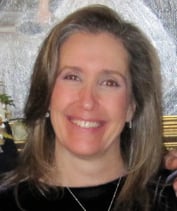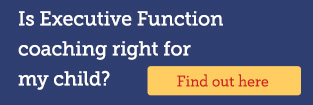Editor’s note: This week, we interview Lori Day, an Educational Consultant in Newburyport, MA. Having worked in academia for her entire career, Lori is well-prepared to serve the needs of her clients. We chatted with her recently about her work with parents, students (with and without learning disabilities), and schools.
JS: Why do families seek out educational consultants?
LD: Every child deserves the most ideal academic and social environment in which to develop, learn and grow into adulthood. Finding the right school for a child is one of life’s most important decisions emotionally and financially. Families need help in navigating their many educational opportunities, a process that can be fun and rewarding, but for some families also challenging, overwhelming, frustrating, and stressful.
Admissions for Independent Schools
JS: It seems that it’s more competitive than ever to get into an independent private school. In some instances, parents even need to submit essays along with their children’s applications. Do you help parents with the application process?
JS: As someone who was formerly in admissions at a private school, do you hold the secret to getting into the right school?
The reason for this is important to understand. It is not because I have the Secret Sauce! It is because I am only interested in working with parents who value expertise and are able to consider my advice on which schools will be a good match for their child, both in terms of being a place where their child will thrive, and also being a school where their child stands a reasonable chance of gaining admission in a competitive process. So if a parent comes to me with a copy of US News & World Report tucked under his or her arm, saying, “Here’s the list of this year's Top Ten schools, and I want one of those,” but their child is an average student, things are not going to work out. If parents are able to look at their child realistically, and work with me on a list of schools that includes some good bets, a safety, and a reach or two, then the odds are good their child will end up with at least one desired acceptance letter in March.
Finding the Best School Fit for Students With Learning Disabilities
JS: How do you help parents with a child who is bright, yet has a diagnosed learning disability such as ADHD or dyslexia?
LD: Each year I work with some parents who have children with mild special needs such as well-managed ADHD, mild Executive Dysfunction, or Dyslexia. Sometimes they need a school like the Carroll School or the Landmark School, but often they can apply successfully to mainstream schools. As long as parents are realistic about who their children are, I can help. We would look at options where support is provided and where the attitude of the school is welcoming. The most difficult placements involve children who are on the autism spectrum or have behavioral problems. The independent schools I work with are more wary about admitting kids who will require a lot from teachers or will upset other tuition-paying parents. It is a sad truth. I am up-front with parents about this and they make an informed decision about whether they want to hire me, understanding that I can help them, but that it will be a more difficult endeavor than it is for children with difficulties that do not involve significant social or behavioral deficits. I can also refer parents to other consultants who specialize in school placements for children with challenging behaviors.
JS: What are some common questions or concerns that parents have about special education services in public and private schools?
LD: There are lots. Many parents are pleasantly surprised to learn that students in private schools do not have to take the state-mandated standardized testing, like MCAS here in Massachusetts. Parents of children with special needs are especially keen to release their children from this testing, and they do not have to opt out in private school because none of the students take those tests. Students with IEP’s or 504 plans are part of a very structured legal support system in public schools that they will not have in private schools. Private schools do not have to follow the same legal guidelines public schools do. They provide as much or as little support as they choose. In some cases, kids are better off staying in public schools, even though parents may be dissatisfied in some way and looking to get them out. I can review a student’s neuropsychological testing, report cards and so forth to help parents decide whether it makes sense to pursue applying to private schools. If it seems best for a child to stay in public school and receive better support, or to apply to non-mainstream private schools, I can refer the parents to other consultants or legal advocates, such as those at the Goldberg Center in Braintree, MA, to help them resolve special ed concerns within the public school or seek private options.
Popular Resources for Parents
JS: Do you have any books, websites, or other resources that you like to recommend to parents?
Is your child struggling in school? Click below to find out how Executive Function coaching can help.

